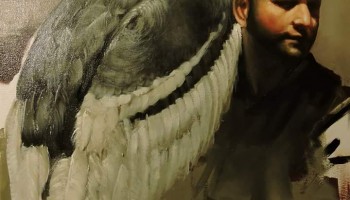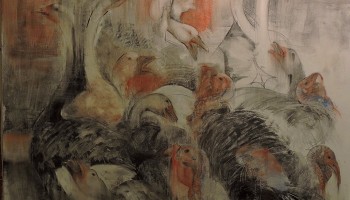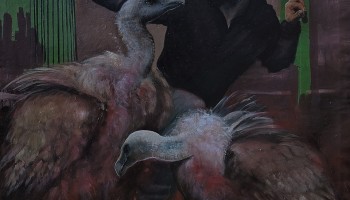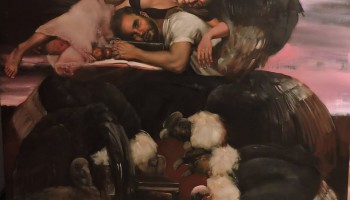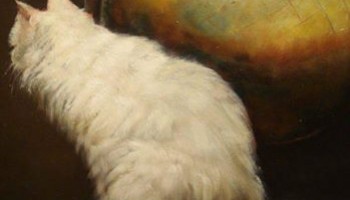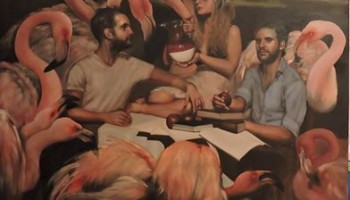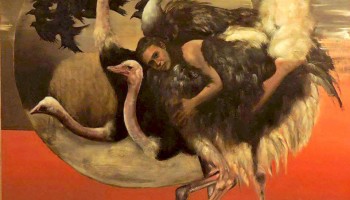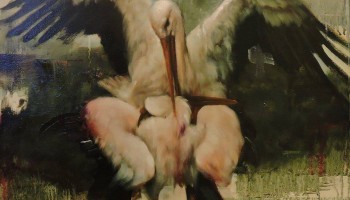Samanta Rched Abugauch

Interview
What is art for you?
As Chagall said, above all art is a state of the soul, the materialization of feelings and thoughts.
How did you approach art?
My grandfather painted. I grew up painting on his lap; we made reproductions of classical artists. That´s all we did, art. My uncles were musicians. I grew up in a very artistic environment.
What inspires you?
Life, the human condition and its unconscious nature.
What are the recurrent themes in your work?
Justice, the discernment between good and bad.
How would you describe your production process?
I’m inspired in life. When something hits me and moves me I need to express it. So I paint everywhere, in my workshop, in my friends’ workshops, on the street or in the countryside. I conduct many activities from which the ideas spring up by themselves.
I work with photographs; I always carry my camera with me because beauty is everywhere. Afterwards I work these photographs into a collage giving strength to the idea. This is my inspiration for my final work.
I later paint directly on the canvas; I go straight to oil and use the sketch as a reference. I allow myself the freedom to let things surge spontaneously.
How would you define your work in terms of tradition, style, school or trend?
I believe my work belongs in classical painting, it’s oil realism painted in the fashion of the argentine artist Roger Mantegani in the 1990’s.
Who´s influenced you?
Mainly my teacher Diego Dayer.
What artists from previous generations are you interested in?
I profoundly admire the classics such as Rembrandt or Sargent, but I consider it important that painting represent the time in which we live. Current artists like Lorca Garcia Huidobro, Odd Nerdrum or Diaz Alama. I’m not saying they are better or worse than the classical painters, but in them I find the novelty factor. These are works at the level of the classics that could not have been painted in any other time period.
What would you like to contribute to the world through your art?
Ideals. Art operates in the realm of each individual’s conscience.
At an impersonal, individualistic and globalized time I believe, as Leopoldo Marechal said, that an artist must be committed to either a religion or a social-political ideology, and if not, he is committed to the treason of his people, or to an individual sleep walk, guilty or not.



